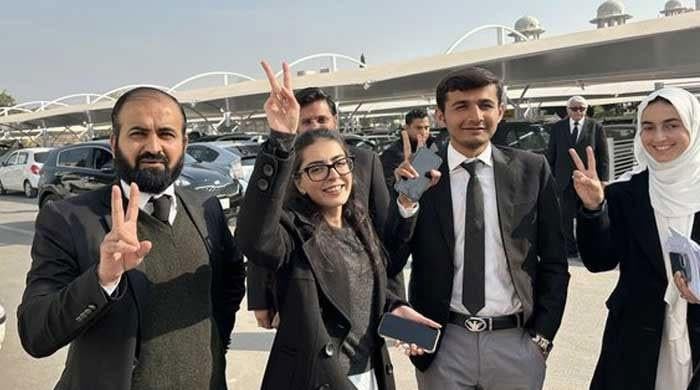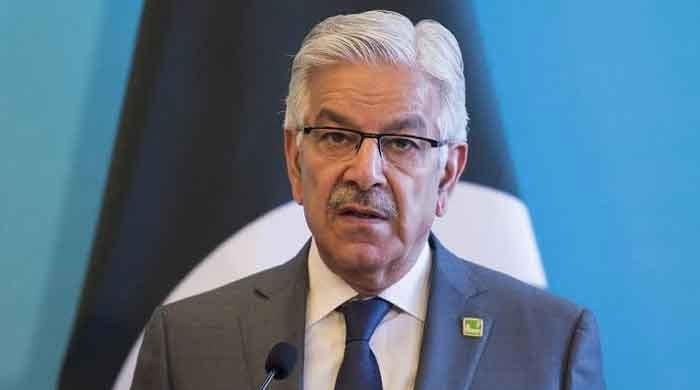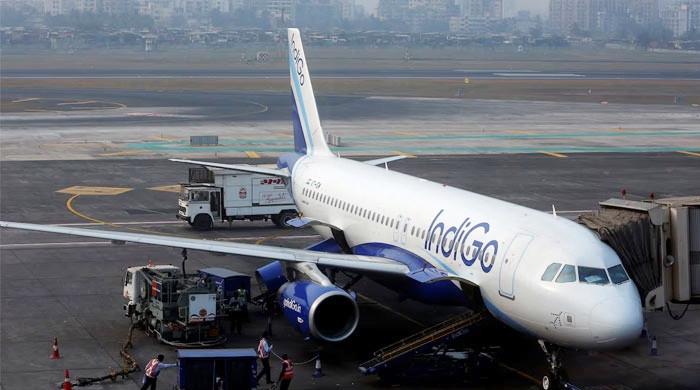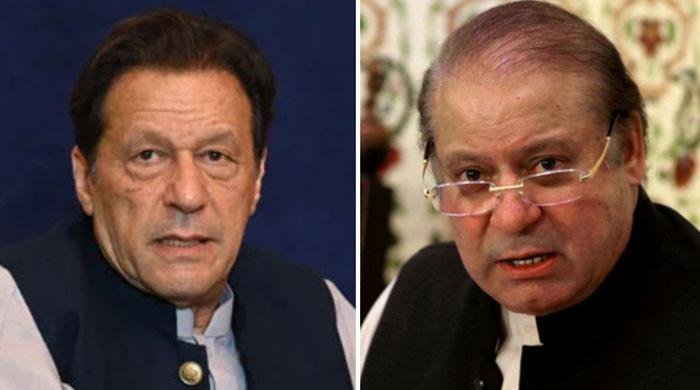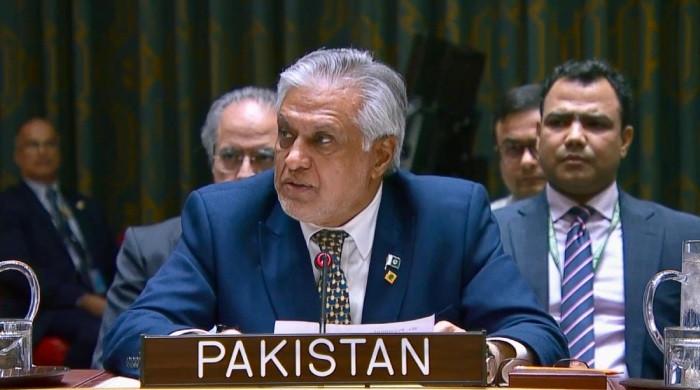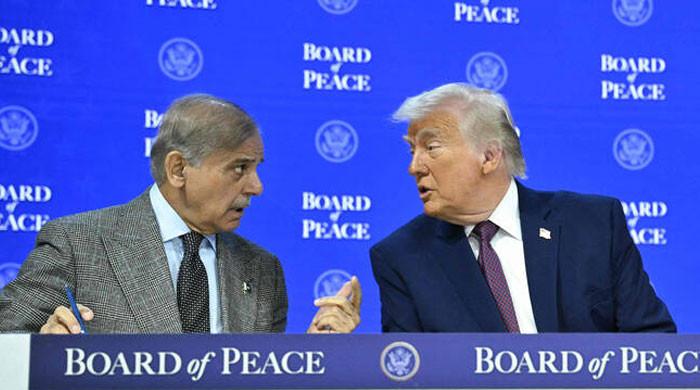CJP’s powers reduced to ‘rubber stamp’ under new SC laws, regrets Justice Bandial
CJP Justice Bandial observes several good amendments have also been introduced
August 31, 2023
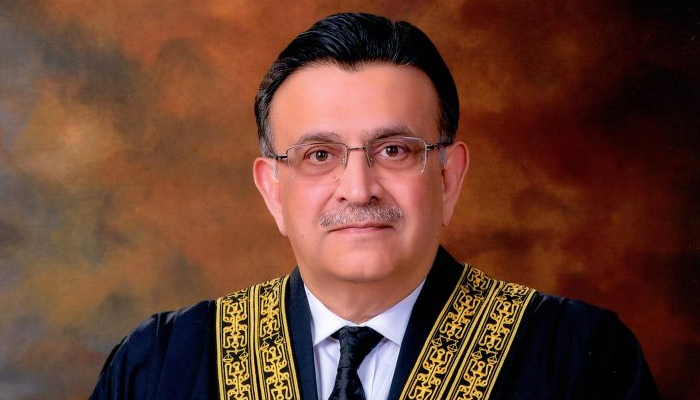
- Revision of two laws did not appear to be priority for parliament, observes CJP Bandial
- AGP concedes some provisions of two laws are overlapping.
- Corruption destroyed society while lives of ordinary citizens have been made difficult, says top judge.
ISLAMABAD: Chief Justice of Pakistan (CJP) Umer Ata Bandial lamented that through the Supreme Court (Practice and Procedure) Act 2023 and Supreme Court (Review of Judgments and Orders) Act 2023, the powers of the CJP had been reduced to ‘rubber stamp’, The News reported on Thursday.
CJP Bandial’s remarks came while he was hearing Pakistan Tehreek-e-Insaf (PTI) Chairman Imran Khan’s petition which challenged amendments to the National Accountability Bureau (NAB) law in 2023. Other members of the bench were Justice Ijazul Ahsen and Justice Syed Mansoor Ali Shah.
It is pertinent to mention that on August 11, the apex court ruled, in a unanimous verdict, that the Supreme Court (Review of Judgments and Orders) Act 2023 was "unconstitutional", which dampened the hopes of ex-PM Nawaz Sharif and Jahangir Tareen who were seeking to challenge their lifetime disqualifications.
Moreover, on August 29, SC termed the Supreme Court (Practice and Procedure) Act 2023 “unconstitutional” whereas CJP Bandial said that this particular legislation was an attempt to interfere with the top court’s jurisdiction.
Whilst hearing the PTI’s petition, the CJP said that “several good amendments have been introduced” as well but regretted that not only were there ‘inconsistencies’ between laws but that the CJP’s powers had been reduced to a rubber stamp.
“The parliament was very active in August,” he added.
Attorney General for Pakistan (AGP) Mansoor Usman Awan came to rostrum and prayed that the parliament had been waiting for a decision from the apex court on the matter and had, therefore, not acted to revise the laws.
The chief justice, however, objected to the explanation and observed that revision of the two laws did not appear to be a priority for the law-making body.
The AGP also clarified that he had not stated that the Supreme Court (Practice and Procedure) Act 2023 had some flaws, but had conceded that some of the provisions of the two laws were overlapping and they would review it.
The CJP told the AGP Awan that the court had accepted his clarification, and added that the court had already noted down his version in its two orders, passed on June 1 and June 8, 2023.
Furthermore, Justice Bandial also justified the hearing of a petition challenging the amendments, made by the previous coalition government to the National Accountability Ordinance (NAO), 1999, with the observation that when people violate the fundamental rights of citizens through corruption and misuse of public money, it needed to be taken into account.
The top court sought a fresh list of people who benefited from the amendments to the NAO 1999, besides seeking a volume of cases, transferred from the NAB courts after the impugned amendments.
During the proceedings, Justice Shah observed that no financial institution, citizens or any political party had knocked at the door of the court against the NAB amendments.
“One runaway politician approached the court, challenging the NAB amendments,” the judge remarked, adding that since the start of the instant case, he had repeatedly asked the petitioner’s counsel as to what fundamental rights of people had been infringed upon through this piece of legislation, but no answer had been provided so far.
CJP Bandial, however, while justifying the hearing of the instant case under Article 184(3) of the Constitution, remarked that the real issue was as to who was being targeted and by whom, and ‘we will have to look into this aspect’.
“Who benefited through this law and who was affected; This is the main issue,” the CJ observed, adding that corruption had destroyed society while the lives of ordinary citizens had been made difficult.
The CJP said that there should be a level playing field where everyone gets equal opportunity to lead a respectable life. “When people make corruption and resort to misuse of public money, affecting their fundamental rights, then it should be taken into account,” the chief justice remarked.
“When major offences were abolished through this law, then questions would be raised,” the chief justice continued and observed that there were monopolies on the financial side and nobody knows the percentage of monopoly by such people on the economy.
The CJP further observed that the top court had taken up the matter in the best interest of fundamental rights enshrined in the constitution as the stance of the petitioner’s counsel that misusing public money by public officeholders directly affects the fundamental rights of people.
Justice Shah, however, observed that there were a number of areas where there were disparities while citing an example of a situation during the flood season and questioned whether the court could issue directions that people should not live there.
“Is it for the court to decide,” the judge questioned and said these are executive affairs and it should be left for it and the court should not interfere.
Makhdom Ali Khan, counsel for the federal government, seconded the remarks of Justice Shah and submitted that the education system in the country had totally collapsed and questioned whether the apex court could formulate a policy for the education sector.
Meanwhile, the CJP asked counsel Ali Khan as to whether the court should issue a public notice asking the public if any citizen wanted to become party to this case, and that he should approach the court.
“Believe me if we issue such a public notice, then more than a thousand people will approach the court to become party to this public interest case,” the CJP told the federal government counsel.
“Let’s put it to the test,” Ali Khan replied with a smiling face.
The CJP, however, said that it’s not possible now as the court had heard the matter for a year, and now it wanted to conclude it at the earliest.
The chief justice told Ali Khan that his arguments were based on two law points: first, it was not the locus standi of the petitioner to file the instant petition, and second that no fundamental rights of the citizens had been affected through NAB amendments.
“Whereas the case of the petitioner is that the whole law has been pushed to one side and cited some Islamic laws regarding accountability,” the CJP told the federal government lawyer.
The CJP further said that the petitioner’s counsel had also contended that accountability also falls in the purview of basic fundamental rights, adding that some procedural and substantial changes had been made to the NAB law in 2023, while exemption was given to some accused in cases, for example, less than Rs500 million corruption excluded from the NAB jurisdiction.
“We are not saying that the whole law was incorrect, as there are some good amendments made to the law as well, like abolishing the 90-day remand, giving right of appeal to the accused, which ensure fundamental rights,” the CJP said.
“But we have to examine as to how many people were given relief through these amendments and who are the beneficiaries,” the chief justice remarked.
The federal government lawyer, however, submitted that the court had no jurisdiction to examine what was made wrong or bad but to look into the law and constitution.
He recalled how the law was ruthlessly used in 1999 as a black law for political victimisation.
The chief justice observed that something should be done against victimisation of politicians.
The apex court adjourned the hearing for August 31 (today).




